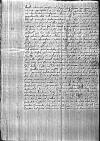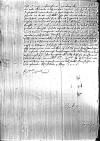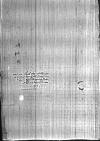Quam me beatum et felicem litteris suis effecit Dominatio Vestra Reverendissima, prae nimio gaudio, quo adhuc aestuo, scribere non possum. Deus Optimus Maximus referat et rependat Dominationi Vestrae Reverendissimae; non opis est nostrae, ille faciat, quod Dominatio Vestra Reverendissima numquam turbetur, sed perpetua felicitate fruatur. Alia, quae in praesens scribi potuerunt, ex litteris ad maiestatem regiam intelleget; hoc tamen, quin scriberem, omittere non potui. Non esse necesse, scribit Dominatio Vestra Reverendissima meo calculo, et ego summe necessarium aestimo; nollem enim cuiuscumque suspicioni fidei meae non convenienti esse obnoxius, hocque aliquando, Deo bene favente, cum rediero, non erit obscurum. Heri cum mihi regiae cum litteris Dominationis Vestrae Reverendissimae sunt redditae, de omnibus pecuniis et meis et regiis, per Deum sancte iuro, non restabant mihi nisi 18 ducati, unde a ⌊Fuccaris⌋, ut chirographus meus docebit, accepi in mutuum ducatos trecentos, de quibus subinde, ut me aliis oratoribus conformem facerem, pro una mula 50 exposui, pro vestibus aestivalibus etiam 50 dari oportet, statim centum evanuerunt. Accedunt praeterea cotidie multa pro rebus domesticis, equis, servitoribus, quae licet frustatim exponantur, tamen non exiguam summam conficiunt. Utor ea, qua possum, parsimonia, ut cum dignitate ⌊maiestatis regiae⌋ ceteris oratoribus non inferior hic agere possim, habeturque a me ratio, ut inter me, oratorem serenissimi regis nostri, et inter ⌊Moscorum⌋ nuntios certa sit differentia et utriusque principis respectus, et certe dinoscimur. Sed haec aliquando ab aliis referentur. Cumque voluntas regia est, quod hic maneam, manebo libenter ac pro debito et fide mea solita agam ea omnia, quantum se meus intellectus extendit, quae fideli subdito et servo ⌊maiestatis regiae⌋ conveniunt. Hoc sibi Dominatio Vestra Reverendissima et ⌊principibus⌋ nostris de me certo persuadere et polliceri poterit, in quo, si qua fides est homini, Dominatio Vestra Reverendissima non seducetur, neque illam, Deo duce, de me umquam fallet opinio. Scripsi in pluribus litteris vehementius fortassis quam convenit Dominationi Vestrae Reverendissimae, quae, ut spero, post domini doctoris ⌊Bork⌋ adventum perferentur. Rogo atque obsecro per gratiam suam in me, ignoscat et animo tot procellis agitato det veniam ac clementer indulgeat. Quae Dominatio Vestra Reverendissima scribit de meis popularibus, illos nihil moror in malam maximam crucem, plaga Dei est, qua sine dubio paulo post gravissime corripientur. Velim meos procul ab illis agere. Exhibeat mihi Dominatio Vestra Reverendissima eam gratiam, cum hoc tempore non vacat, quod scriberem, committat alicui de suis, vel domino et fratri meo ⌊Nibsczicz⌋, ut parentibus meis scribatur me hic recte valere; scio enim illos de mea salute esse plurimum sollicitos. Alia non restant. Nunc mihi relatum est, inter pontificem, caesarem, regem Angliae et archiducem Austriae firmissimum foedus novum esse percussum, ut vocant, defensivum et offensivum. Relictus est locus intrare volentibus sub condicione, quam pontifex et caesar est praescripturus. Fertur etiam, pontifex decimam partem omnium redituum et proventuum suorum caesari contra infideles promisisse, et cum proficiscetur, se velle efficere, quod caesar pro nervo bellico septem milliones auri, qui faciunt septuaginta centena milia ducatorum, habere debet. Caesar ad hoc iter omnino est propensus, modo firmam cum Gallis pacem habere posset. Istas condiciones Gallis proposuit, ut imprimis restituerent ea omnia, quae Carolus, dux Burgundiae, ante 60 annos possidebat, et quod pro interea perceptis se omni superioritati de ducatu Burgundiae abdicarent, quod etiam provinciam redderent, in quo est Marsilia et domino duci Borbonensi, quem caesar pro fratre habet et illi sororem suam Leonoram despondit, bona sua in Gallia restituerent, vultque caesar ex duce Borbonensi regem Burgundiae facere, cum Burgundia prius etiam regnum fuerit. Dominus de Benhein, quem his de rebus caesar ad Gallos misit, nondum rediit; quale reportabit responsum, cum primis postis ac de rebus aliis latius scribam.
Inventae sunt etiam ⌊caesari⌋ novae insulae copiose habitatae, ad quos etiam nemo nostrum prius pervenit aromatibus variis et auro refertissimae, acciditque illic miraculum prius in orbe Christiano numquam auditum, quod uno die fidem Christi susceperunt trecentena et septuaginta milia hominum utriusque sexus. Ea de re cum ibidem esset prae nimio calore extrema sterilitas, persuasum fuit illis ab ⌊Hispanis⌋, quod in processionem irent, crucem prae se ferentes illumque, qui in ea passus fuisset, ut nos redimeret, adorantes, relictis idolis. Quod cum fecissent, subito copiosam Deus dedit pluviam et omnem terram irrigavit, ut fructus produceret. Unde in ista ignota mundi parte Christianismus fit et apud nos, id peccatis nostris merentibus, deficit. Quis novit sensum Domini, aut quis consiliarius eius fuit? Homines in illis insulis non sunt nigri ut ⌊Aethiopes⌋, sed fusci coloris, humaniores aliis inventis, estque propinquior via ad illos, quam ad eos, quos rex Portugaliae repperit. Sed processi longius, cogor vela contrahere, ne hanc postam neglegam, alio tempore de omnibus diffusius scripturus. Commendo me humillime Dominationi Vestrae Reverendissimae, et reverendissimo domino meo Premisliensi, cui in praesentia non licet scribere, faustissima omnia precor.



